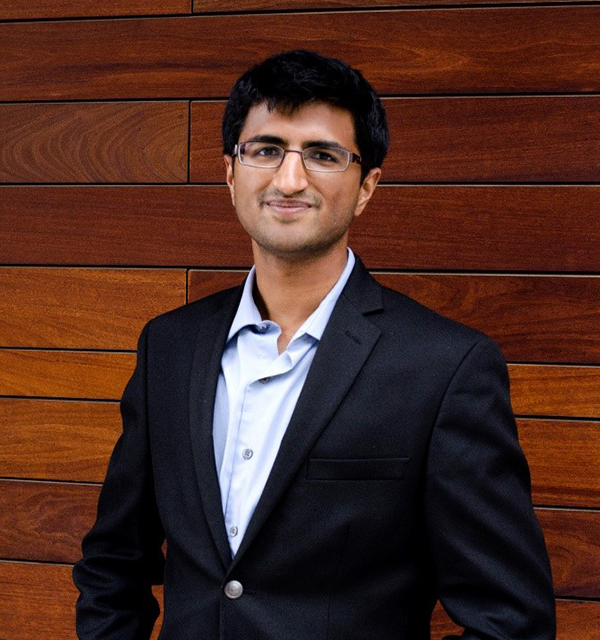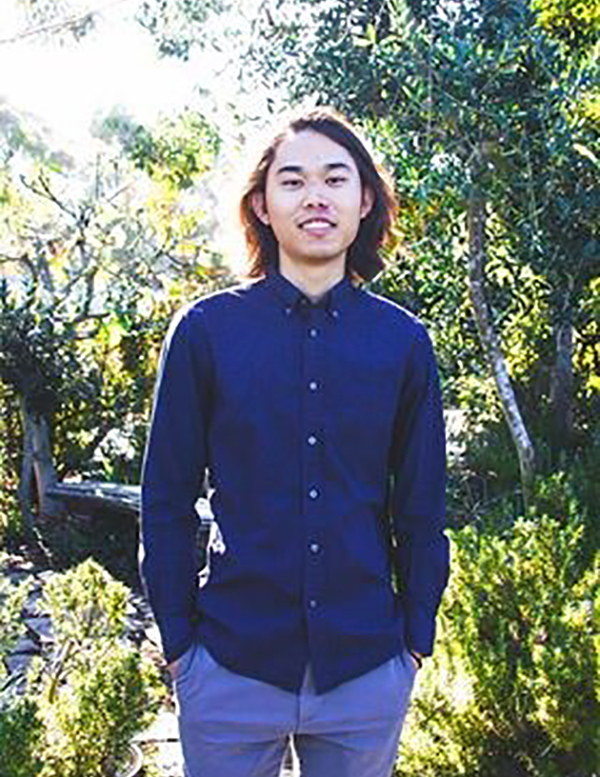Scientists Discover a New Signaling Pathway and Design a Novel Drug for Liver Fibrosis
Health & Behavior
Two UC San Diego undergraduate students were named Donald A. Strauss Foundation Public Service Scholars, and were awarded a $15,000 prize to pursue their social change and public service projects. The prestigious scholarship was awarded to 12 sophomore or junior undergraduates, and is meant to help fund their innovative projects.
Varun Govil, a bioengineering: biotechnology junior, was awarded the scholarship for his project proposal to develop synthetic biology outreach initiatives for underrepresented minority high school students. Samuel Shing, a biology and music double major, was selected for his effort to start a music education club called Initiative for Music Education and Mentorship (IMEM). Descriptions of their projects are below.

Varun Govil
Govil is a bioengineering: biotechnology junior aiming to help underrepresented high school students learn more about synthetic biology techniques and feel empowered to do scientific research.
Govil’s proposal continues the education work that he and other students started through an International Genetically Engineered Machine (iGEM) project team. Last year, the team participated in the iGEM synthetic biology competition, in which students develop novel research tools using biological parts. As part of the competition scoring, students must also design a set of synthetic biology teaching tools to promote synthetic biology literacy.
His project, Verde Lux, is a continuation of that effort. With the iGEM team, Govil wrote a 200-page synthetic biology textbook and a Periodic Table of Elements for Synthetic Biology, both primers for introducing synthetic biology concepts in a digestible manner to students.
Govil plans to extend it further, adding in a teaching platform that integrates virtual reality technology to simulate a wet lab environment, and a capstone project for students to complete.
By adding in these elements of engagement, Govil wants to help bolster underrepresented minority students’ confidence in their ability to do science.
“In high school, some students don’t have the funding to do projects,” he said. “There’s a clear difference between those students and students from affluent schools, and I’d like to help rectify that.”
Govil considers the virtual reality tool an especially useful aspect of the Verde Lux program.
“When I’m trying to learn something, it’s often easier to visualize it,” he said. With the VR modules, students can easily see what they’re working with.
One of the other big additions for Verde Lux is the capstone project. While not all students in high school get the chance to join a lab, they can still practice their scientific inquiry skills. Govil plans to bring researchers to talk to students about different biomedical fields and to encourage students to read and discuss scientific papers they’re interested in. Throughout this process, students write their own research proposals and at the end of the program, they’ll get to see their project proposals on the Verde Lux website.
His work in communicating science and synthetic biology education has inspired Govil to pursue work in scientific policy post-graduation. While he enjoys science work, he thinks he can more directly help people through crafting smarter policies. Over the summer, he will continue refining a clinical liquid biopsy test he developed last year, while working with Congressional representatives on identifying critical lags in the current healthcare system.

Samuel Shing
While Govil wants to train the next generation of synthetic biologists, Shing is planning to stimulate future musicians. Shing is a biology and music double major, and founder and current president of Initiative for Music Education and Mentorship (IMEM).
The mission of IMEM is to foster musical appreciation in those who want exposure and do not have ready access to music resources, as well as enrich music programs in underserved populations. Members of IMEM go to San Diego elementary, middle and high schools to teach students music and help them get excited about the field.
Shing plans to use the scholarship money to fund transportation costs and increase the group’s publicity efforts to impact more students. He’s also considering renting out instruments to expand the program.
“I’m looking to potentially set up classrooms at schools where there are no existing programs,” he said.
Giving back to his community is an opportunity he cares deeply about. After playing piano since he was four and receiving mentorship from his music teachers, he realized that he had the tools to make a difference in other students’ lives.
“Music has taught me so much - discipline, responsibility, perseverance, stress management, the list goes on and on,” Shing said. “I wanted to help instill these qualities in students because these skills have helped me get to where I am today.”
In the future, Shing wants to be a physician, but he doesn’t plan to stop making music. After graduating, he would like to create similar music education groups wherever he goes next. As for IMEM, he hopes to see it spread its roots around campus, and even beyond.
“I would love to be able to reach out to more schools, and if so develop chapters at other universities,” Shing said.
To learn more about IMEM
https://www.facebook.com/IMEM.UCSD/
Keep up with all the latest from UC San Diego. Subscribe to the newsletter today.